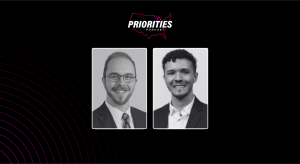Bill to shift how Calif. manages broadband fund moves ahead

A bill to change how California studies statewide broadband adoption and funds projects to connect public housing developments to the internet is picking up steam in the Legislature.
State Sen. Ben Hueso’s S.B. 745 is now scheduled for a hearing in an Assembly committee next week, after overwhelmingly passing the Senate in January.
The bill would prompt a series of changes to the Public Utilities Commission’s “California Advanced Services Fund,” a program designed to fund broadband infrastructure projects to help 98 percent of the state’s households get high-speed internet access. Namely, the legislation would direct the commission to prioritize public housing communities that are currently “unwired” for funding, and require the commission to study how the fund has spurred broadband adoption at a county level as part of its annual report to lawmakers.
The bill has been through its share of changes since Hueso introduced it last February. Initially, Hueso’s legislation would have merely expanded which kinds of organizations are eligible to receive money through one of the grant programs housed under the fund.
But as it made its way through Hueso’s Senate Committee on Energy, Utilities and Communications, lawmakers added in the provision to change how the commission examines broadband adoption.
“Improving the information available to policymakers about the efforts and activities of the CASF program will help to further our efforts to improve access for more Californians,” Hueso wrote as part of a committee report on the bill. “More detailed information at the county-level and information about efforts to leverage non-CASF resources will be beneficial to inform policymakers as to the existing challenges and opportunities.”
[Read more: California bill allowing VOIP transition stalls, but opponents fear revival]
The Senate’s Appropriations Committee ultimately unanimously approved the bill, but members warned that the study change would necessitate “workload increases likely in the tens of thousands of dollars from the CASF for additional reporting requirements,” resulting in expenses as high as $90,000 per year, according to committee analyst Nidia Bautista. However, she added that “Appropriations Committee staff believes that these costs are likely to be an upper limit and should decrease with time once new data collection processes are established.”
That version of the legislation passed the Senate 36-1, but once it crossed over to the Assembly, Hueso tweaked the bill a bit. He added the provision about public housing broadband projects on Monday, which would direct the commission to prioritize communities including “at least one housing unit within the housing development [that] is not wired” to connect to a broadband provider.
The legislation would still allow “wired” developments to earn funding through the program, but “only if the commission determines that the project would provide broadband internet service at no greater cost for comparable speed and quality than is commercially available before the project.”
This latest version of the bill is now up for consideration by the Assembly’s Utilities and Commerce Committee, which will hold a hearing on the legislation on June 29.
Contact the reporter at alex.koma@statescoop.com, and follow him on Twitter @AlexKomaSNG.






